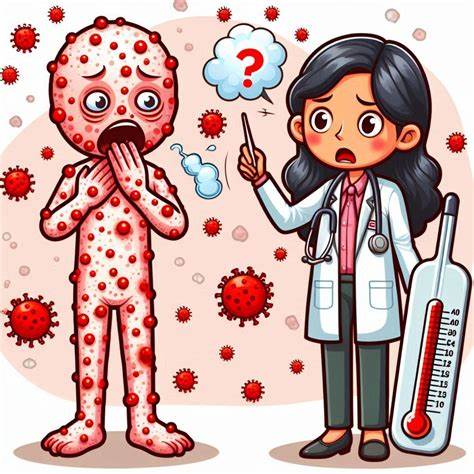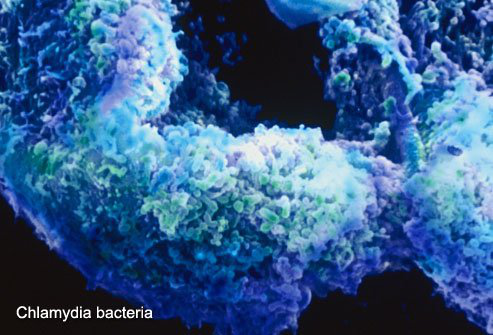Chlamydia
Chlamydia is a common sexually transmitted infection that can lead to infertility if left untreated. Its symptoms may go unnoticed, or be vague and nonspecific, and some individuals may not experience any symptoms at all.
Chlamydia Symptoms
- Burning or itching of the genitals
- Discharge
- Painful urination
- Chlamydia infections can also develop in the rectum and throat.
Chlamydia occurrence and its impact on different groups
In 2022, there were 199,233 chlamydia diagnoses in England across all age groups. This represents a 24.3% increase from the previous year (160,279 diagnoses in 2021)
Gender Differences
Among young women aged 15 to 24 years screened through the National Chlamydia Screening Programme (NCSP):
- Chlamydia tests: 690,531 tests were carried out in 2022, a slight decrease compared to 2021 (698,979).
- Chlamydia diagnoses: There were 68,882 chlamydia diagnoses, showing a 21.8% increase from 2021 (56,562).
- Test positivity: The test positivity rate increased from 8.1% to 10.0% over the same period.

Symptoms and Signs
- Most of the time, chlamydia infection is asymptomatic in the initial stage.
- Common symptoms in women include:
- Vaginal discharge
- Itching in the vaginal area
- Bleeding between periods
- Painful sexual intercourse
- In men, symptoms may include:
- Pain and swelling in the testicles
- Discharge from the penis
- Other common symptoms include pain while urinating, lower abdomen pain, rectal pain, and bleeding.
Among young women aged 15 to 24 years screened through the National Chlamydia Screening Programme (NCSP):
Untreated chlamydia can lead to several long-term health issues, especially if left unaddressed. Here are some potential consequences:
- Pelvic Inflammatory Disease (PID):
- PID is an infection that affects the female reproductive organs. It occurs when chlamydia (or other bacteria) spreads to the uterus, fallopian tubes, and ovaries.
- Symptoms include pelvic pain, abnormal discharge, bleeding, and painful urination.
- Chronic PID can cause damage to the reproductive organs and contribute to infertility.
- Epididymitis:
- While long-term problems in men are rare, untreated chlamydia can lead to epididymitis.
- Epididymitis is inflammation of the epididymis (a tube near the testicles).
- Symptoms include testicular pain, swelling, and discomfort.
- Increased Risk of Other STIs:
- Untreated chlamydia can weaken the immune system and increase susceptibility to other sexually transmitted infections (STIs), including HI.
- Infertility:
- Both men and women can experience infertility due to untreated chlamydia.
- Damage to the reproductive organs can hinder conception.
- Chronic Pain:
- Some individuals may experience chronic pelvic or abdominal pain due to untreated chlamydia.
- Complications During Pregnancy:
- Pregnant individuals with untreated chlamydia are at risk of complications such as premature birth, low birth weight, and neonatal infections.
Remember, early detection and treatment are crucial to prevent these long-term effects. Regular screenings and safe sexual practices are essential for maintaining reproductive health.
Chlamydia in both men and women:
- Symptoms in Women:
- At least 70% of women with chlamydia don’t notice any symptoms.
- If symptoms do occur, common ones include:
- Pain when urinating
- Unusual vaginal discharge
- Pain in the tummy or pelvis
- Pain during sex
- Bleeding after sex
- Bleeding between periods
- If left untreated, chlamydia can spread to the womb and cause a serious condition called pelvic inflammatory disease (PID), which can lead to infertility and ectopic pregnancy.
- Symptoms in Men:
- At least half of all men with chlamydia don’t notice any symptoms.
- If symptoms do develop, they may include:
- Pain when urinating
- White, cloudy, or watery discharge from the penis
- Burning or itching in the urethra (the tube that carries urine out of the body)
- Pain in the testicles
- Untreated chlamydia can cause swelling in the epididymis (the tubes that carry sperm from the testicles) and affect fertility.
- Other Possible Infections:
Chlamydia can also infect other areas:
- Rectum: Through unprotected anal sex, causing discomfort and rectal discharge.
- Throat: Through unprotected oral sex (uncommon and usually asymptomatic).
- Eyes: Contact with infected semen or vaginal fluid, leading to eye redness, pain, and discharge (conjunctivitis).
When to Seek Medical Advice:
- If you experience any symptoms of chlamydia, visit your GP, community contraceptive service, or local genitourinary medicine (GUM) clinic promptly.
- Regular testing is recommended for sexually active individuals, especially those under 25 years old.
Remember, early detection and treatment are crucial to prevent complications. Regular screenings and safe sexual practices are essential for maintaining reproductive health.
Untreated chlamydia can lead to several long-term health issues, especially if left unaddressed. Here are some potential consequences:
- Pelvic Inflammatory Disease (PID):
- PID is an infection that affects the female reproductive organs. It occurs when chlamydia (or other bacteria) spreads to the uterus, fallopian tubes, and ovaries.
- Symptoms include pelvic pain, abnormal discharge, bleeding, and painful urination.
- Chronic PID can cause damage to the reproductive organs and contribute to infertility.
- Epididymitis:
- While long-term problems in men are rare, untreated chlamydia can lead to epididymitis.
- Epididymitis is inflammation of the epididymis (a tube near the testicles).
- Symptoms include testicular pain, swelling, and discomfort.
- Increased Risk of Other STIs:
- Untreated chlamydia can weaken the immune system and increase susceptibility to other sexually transmitted infections (STIs), including HIV.
- Infertility:
- Both men and women can experience infertility due to untreated chlamydia.
- Damage to the reproductive organs can hinder conception.
- Chronic Pain:
- Some individuals may experience chronic pelvic or abdominal pain due to untreated chlamydia.
- Complications During Pregnancy:
- Pregnant individuals with untreated chlamydia are at risk of complications such as premature birth, low birth weight, and neonatal infections.
Remember, early detection and treatment are crucial to prevent complications. Regular screenings and safe sexual practices are essential for maintaining reproductive health.
Chlamydia is a common sexually transmitted infection (STI) that can be prevented. Here are practical steps to protect yourself:
- Use Condoms Consistently:
- Always use a condom during vaginal, anal, or oral sex. Condoms act as a barrier and significantly reduce the risk of chlamydia transmission.
- Regular Testing:
- Get tested regularly if you’re sexually active, especially if you have new or casual partners. Early detection allows prompt treatment.
- Limit Sexual Partners:
- Reducing the number of sexual partners lowers your exposure to potential infections. Choose partners wisely.
- Safe Sex Practices:
- Use a dental dam during oral sex to protect against chlamydia transmission.
- Avoid sharing sex toys, or if you do, clean them and cover them with a new condom each time.
- Educate Yourself:
- Learn about STIs, including chlamydia. Knowledge empowers you to make informed decisions.
- Avoid Unprotected Contact:
- Prevent genital contact with an infected partner’s genitals, even without penetration. Chlamydia can spread through skin-to-skin contact.
- Remember, regular testing and safe practices are key to staying healthy.




















Comments